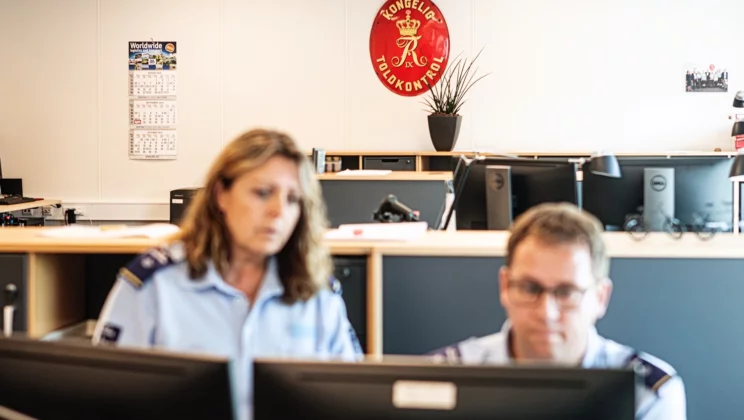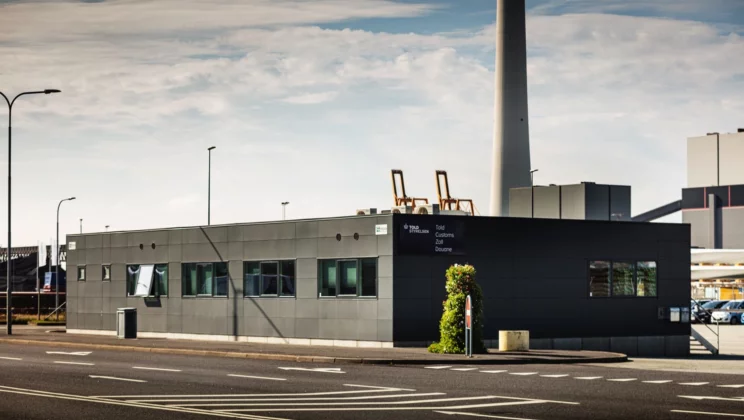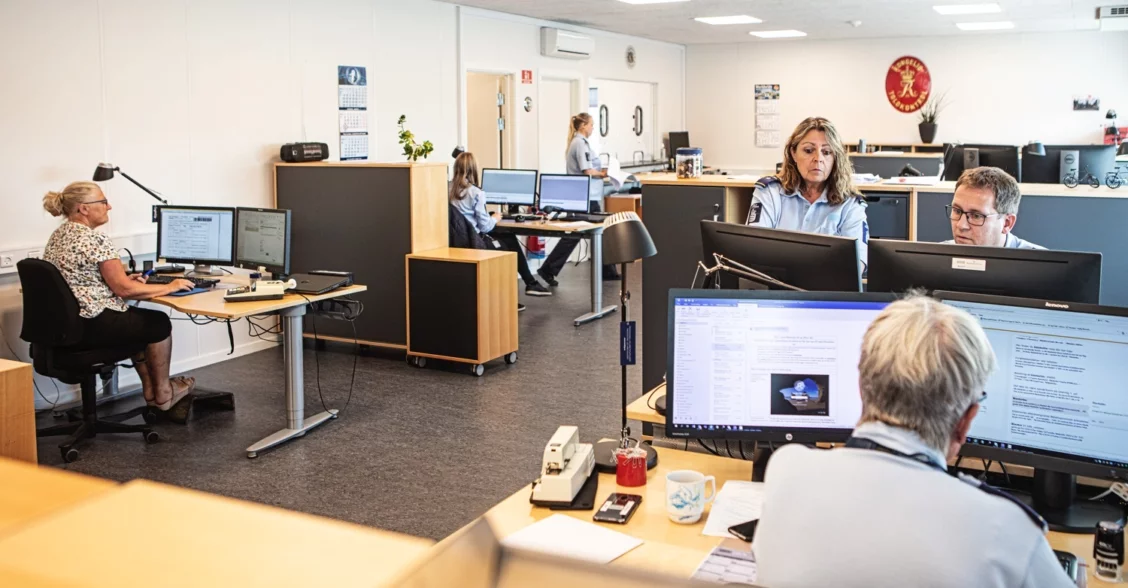Britain left the EU on 31 January, but our collaboration with the UK, trade and transport may continue as before for the rest of 2020. No one knows what will happen after that, but Port Esbjerg is prepared for many different Brexit outcomes.
For a long time, a hard Brexit seemed likely, but at the last minute, the EU and Britain managed to agree on the terms of a withdrawal agreement. This is good news for industry and businesses because it means that trading between the EU and Britain continues on the same terms as before.
The transition period runs for the rest of 2020, and more specifically, according to Director of Trade at the Danish Customs Agency, Maren Holm Johansen, it means business as usual at the port of Esbjerg:
“I can safely say that the rules of trade between the EU and Britain will not change during the transition period. It’s business as usual on that front. It’s no secret that there have been grave concerns about the impact of Brexit, and we’d like to dispel those concerns, so Denmark and the UK can continue trading smoothly,” she says.
No veterinary border control at Esbjerg just yet
Equally, the word from the Danish Veterinary and Food Administration is that there will be no changes for the rest of the year. Had the parties not struck a withdrawal agreement, the prospects would have been veterinary border control as from 1 February, but those plans have now been put on hold, explains Anna Cecilie de Klauman, Head of Section with the Veterinary and Food Administration’s Centre for International Cooperation.
‟Goods from the UK will be considered EU goods during the transition period. That means Danish food businesses can continue trading with the UK on ordinary, existing terms until the end of 2020,” she says.

The Customs Agency has taken on 40 new customs officers nationwide in preparation for Brexit, and the offices at Esbjerg have been extended and the staff have been increased from four to seven people.
Not a signal to sit back and relax
Given the uncertainty about the situation after 31 December 2020, businesses should not park their Brexit preparations. There are three possible outcomes of the upcoming EU-UK negotiations:
One is that the parties agree on a trade agreement governing all future trade between the EU and Britain. A second outcome is a so-called hard Brexit that would leave the parties without an agreement from 1 January 2021. If that happens, Britain will be considered a third country. A third possibility could be that the parties extend the withdrawal agreement by one or two years.
“Unfortunately, a hard Brexit is not off the table. It’s a possible scenario from 1 January 2021, if the EU and Britain fail to agree on their future trade relations,” says de Klauman. She encourages all businesses to prepare as well as they can for all possible outcomes – including for a hard Brexit.
“Businesses should continue to review their UK business activities carefully to ensure that they will be ready when the transition period runs out. At the Veterinary and Food Administration, we are ready to guide and assist them in their preparations.”
The message from the Customs Agency is the same, and Maren Holm Johansen encourages all businesses trading with the UK to take a thorough look at what it means to trade with a third country.
If Britain becomes a third country, goods moving in or out of Britain will be subject to VAT and customs duties. Companies that do not have the right documents and permits in place could see delays in trading with England, Scotland and Northern Ireland.
“We are working hard to update our guidelines and information about the new cut-off date, and we continue to arrange Brexit information meetings and webinars,” says Johansen.
The Customs Agency has taken on 40 new customs officers nationwide in preparation for Brexit, and the offices at Esbjerg have been extended and the staff have been increased from four to seven people.
The EU-UK negotiations for a trade agreement will continue over the coming months.

The Customs Agency encourages all businesses trading with the UK to take a thorough look at what it means to trade with a third country.
Fact box: There is help available
- To find guidance, information and FAQs about customs rules at the Danish Customs Agency, click HERE.
- Or you can call the Customs Agency’s Brexit hotline on tel. +45 72221212.
- To book a meeting with the Customs Agency for guidance on Brexit, click HERE
- To find information, guidance, FAQs and video cases on what Brexit means for food businesses, click HERE to go to the Veterinary and Food Administration’s website.
- The Confederation of Danish Industry has prepared a Brexit Toolkit – you will find it HERE
Go to overview

